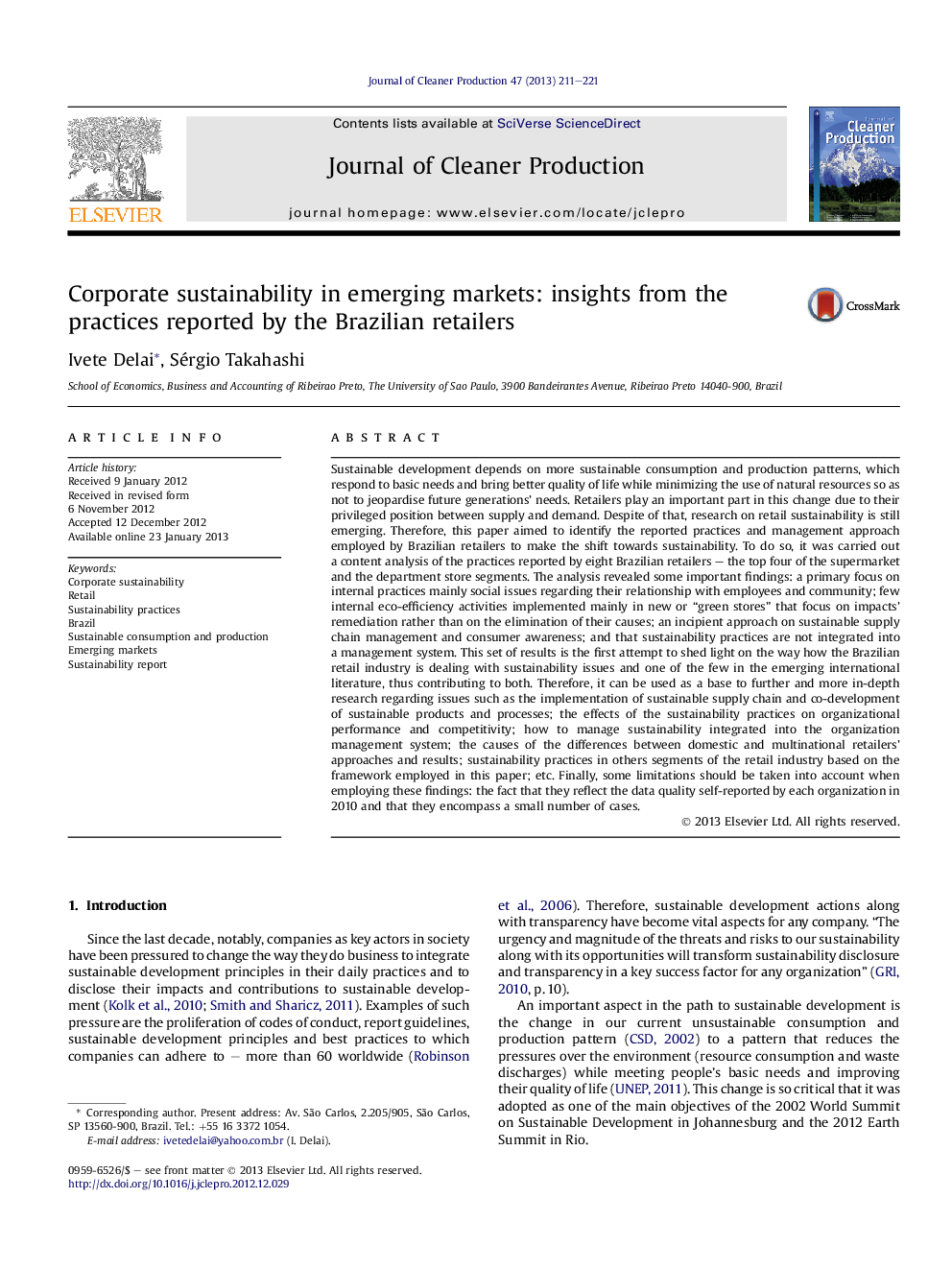| Article ID | Journal | Published Year | Pages | File Type |
|---|---|---|---|---|
| 1745485 | Journal of Cleaner Production | 2013 | 11 Pages |
Sustainable development depends on more sustainable consumption and production patterns, which respond to basic needs and bring better quality of life while minimizing the use of natural resources so as not to jeopardise future generations' needs. Retailers play an important part in this change due to their privileged position between supply and demand. Despite of that, research on retail sustainability is still emerging. Therefore, this paper aimed to identify the reported practices and management approach employed by Brazilian retailers to make the shift towards sustainability. To do so, it was carried out a content analysis of the practices reported by eight Brazilian retailers – the top four of the supermarket and the department store segments. The analysis revealed some important findings: a primary focus on internal practices mainly social issues regarding their relationship with employees and community; few internal eco-efficiency activities implemented mainly in new or “green stores” that focus on impacts' remediation rather than on the elimination of their causes; an incipient approach on sustainable supply chain management and consumer awareness; and that sustainability practices are not integrated into a management system. This set of results is the first attempt to shed light on the way how the Brazilian retail industry is dealing with sustainability issues and one of the few in the emerging international literature, thus contributing to both. Therefore, it can be used as a base to further and more in-depth research regarding issues such as the implementation of sustainable supply chain and co-development of sustainable products and processes; the effects of the sustainability practices on organizational performance and competitivity; how to manage sustainability integrated into the organization management system; the causes of the differences between domestic and multinational retailers' approaches and results; sustainability practices in others segments of the retail industry based on the framework employed in this paper; etc. Finally, some limitations should be taken into account when employing these findings: the fact that they reflect the data quality self-reported by each organization in 2010 and that they encompass a small number of cases.
